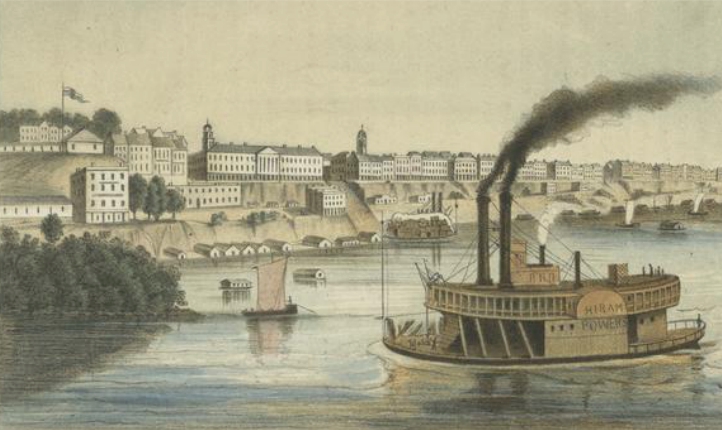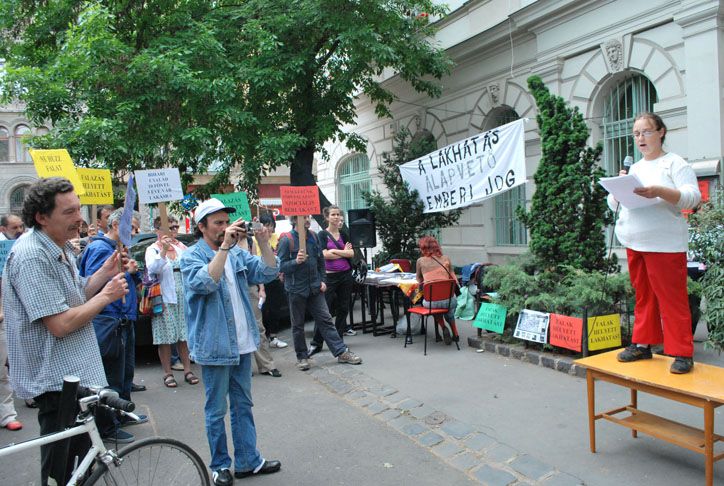|
Claude C. Williams
Claude Clossey Williams (1895–1979) was a Presbyterian minister active for more than 50 years in civil rights, race relations, and labor advocacy.''The New York Times Biographical Service'', July, 1979, pages 1005-1006. He worked with the Southern Tenant Farmers Union, founded the People's Institute for Applied Religion, and served as the national vice president of the American Federation of Teachers. He was also the director of Commonwealth College in Mena, Arkansas, from 1937–1939. As a young fundamentalist preacher in the rural South, Williams' initial motivation was the spiritual salvation of his parishioners, or in his words, to “save their never-dying, ever-precious souls from the devil’s hell eternal.”Studs Terkel, ''Hard Times: An Oral History of the Great Depression''. New York, Pantheon Books, 1970, pages 328-332. This motivation later evolved into a quest for social justice for the poor throughout society, leading to confrontations with white supremacists and ... [...More Info...] [...Related Items...] OR: [Wikipedia] [Google] [Baidu] |
Weakley County, Tennessee
Weakley County is a county located in the northwest of the U.S. state of Tennessee. As of the 2010 census, the population was 35,021. Its county seat is Dresden. Its largest city is Martin, the home of the University of Tennessee at Martin. The county was established by the Tennessee General Assembly on October 21, 1823, and is named for U.S. Congressman Robert Weakley (1764–1845). Weakley County comprises the Martin, TN Micropolitan Statistical Area. History Weakley County was created in October 1823 from some of the land that the Chickasaw people ceded to the United States in the Treaty of 1818. The county was named after Colonel Robert Weakley, a member of the House of Representatives, a speaker of the State Senate, and the man commissioned to treat (negotiate) with the Chickasaw. During the 19th century, the county was the state's largest corn producer. By the latter half of the 20th century, soybeans became the county's leading crop. Geography According to the U.S. ... [...More Info...] [...Related Items...] OR: [Wikipedia] [Google] [Baidu] |
Cumberland Presbyterian Church
The Cumberland Presbyterian Church is a Presbyterian denomination spawned by the Second Great Awakening.Matthew H. Gore, The History of the Cumberland Presbyterian Church in Kentucky to 1988, (Memphis, Tennessee: Joint Heritage Committee, 2000). In 2019, it had 65,087 members and 673 congregations, of which 51 were located outside of the United States. The word ''Cumberland'' comes from the Cumberland River valley where the church was founded. History Formation The divisions which led to the formation of the Cumberland Presbyterian Church can be traced back to the First Great Awakening. At that time, Presbyterians in North America split between the ''Old Side'' (mainly congregations of Scottish and Scots-Irish extraction) who favored a doctrinally oriented church with a highly educated ministry and a ''New Side'' (mainly of English extraction) who put greater emphasis on the revivalistic techniques championed by the Great Awakening. The formal split between Old Side and N ... [...More Info...] [...Related Items...] OR: [Wikipedia] [Google] [Baidu] |
Memphis, Tennessee
Memphis is a city in the U.S. state of Tennessee. It is the seat of Shelby County in the southwest part of the state; it is situated along the Mississippi River. With a population of 633,104 at the 2020 U.S. census, Memphis is the second-most populous city in Tennessee, after Nashville. Memphis is the fifth-most populous city in the Southeast, the nation's 28th-largest overall, as well as the largest city bordering the Mississippi River. The Memphis metropolitan area includes West Tennessee and the greater Mid-South region, which includes portions of neighboring Arkansas, Mississippi and the Missouri Bootheel. One of the more historic and culturally significant cities of the Southern United States, Memphis has a wide variety of landscapes and distinct neighborhoods. The first European explorer to visit the area of present-day Memphis was Spanish conquistador Hernando de Soto in 1541. The high Chickasaw Bluffs protecting the location from the waters of the Mississipp ... [...More Info...] [...Related Items...] OR: [Wikipedia] [Google] [Baidu] |
Grassroots
A grassroots movement is one that uses the people in a given district, region or community as the basis for a political or economic movement. Grassroots movements and organizations use collective action from the local level to effect change at the local, regional, national or international level. Grassroots movements are associated with bottom-up, rather than top-down decision making, and are sometimes considered more natural or spontaneous than more traditional power structures. Grassroots movements, using self-organization, encourage community members to contribute by taking responsibility and action for their community. Grassroots movements utilize a variety of strategies from fundraising and registering voters, to simply encouraging political conversation. Goals of specific movements vary and change, but the movements are consistent in their focus on increasing mass participation in politics. These political movements may begin as small and at the local level, but grassroots ... [...More Info...] [...Related Items...] OR: [Wikipedia] [Google] [Baidu] |
Little Rock, Arkansas
(The Little Rock, The "Little Rock") , government_type = council-manager government, Council-manager , leader_title = List of mayors of Little Rock, Arkansas, Mayor , leader_name = Frank Scott Jr. , leader_party = Democratic Party (United States), D , leader_title2 = City council, Council , leader_name2 = Little Rock Board of Directors , unit_pref = Imperial , area_total_sq_mi = 123.00 , area_total_km2 = 318.58 , area_land_sq_mi = 120.05 , area_land_km2 = 310.92 , area_metro_sq_mi = 4090.34 , area_metro_km2 = 10593.94 , population_as_of = 2020 United States Census, 2020 , population_est = , pop_est_as_of = , population_demonym = Little Rocker , population_footnotes = , population_total = 202591 , population_rank = US: List of United States cities by population, 118 ... [...More Info...] [...Related Items...] OR: [Wikipedia] [Google] [Baidu] |
Heresy
Heresy is any belief or theory that is strongly at variance with established beliefs or customs, in particular the accepted beliefs of a church or religious organization. The term is usually used in reference to violations of important religious Religion is usually defined as a social- cultural system of designated behaviors and practices, morals, beliefs, worldviews, texts, sanctified places, prophecies, ethics, or organizations, that generally relates humanity to supernatur ... teachings, but is also used of views strongly opposed to any generally accepted ideas. A heretic is a proponent of heresy. The term is used particularly in reference to Heresy in Christianity, Christianity, Heresy in Judaism, Judaism, and Bid‘ah, Islam. In certain historical Christian, Muslim, and Jewish cultures, among others, espousing ideas deemed heretical has been (and in some cases still is) met with censure ranging from excommunication to the death penalty. Heresy is distinct ... [...More Info...] [...Related Items...] OR: [Wikipedia] [Google] [Baidu] |
Fort Smith, Arkansas
Fort Smith is the third-largest city in Arkansas and one of the two county seats of Sebastian County. As of the 2020 Census, the population was 89,142. It is the principal city of the Fort Smith, Arkansas–Oklahoma Metropolitan Statistical Area, a region of 298,592 residents that encompasses the Arkansas counties of Crawford, Franklin, and Sebastian, and the Oklahoma counties of Le Flore and Sequoyah. Fort Smith lies on the Arkansas–Oklahoma state border, situated at the confluence of the Arkansas and Poteau rivers, also known as Belle Point. Fort Smith was established as a western frontier military post in 1817, when it was also a center of fur trading. The city developed there. It became well known as a base for migrants' settling of the "Wild West" and for its law enforcement heritage. The city government is led by Mayor George McGill (D), who made history in 2018 when he was elected as the city's first African American mayor, and a city Board of Directors composed of ... [...More Info...] [...Related Items...] OR: [Wikipedia] [Google] [Baidu] |
Paris, Arkansas
Paris is a city in Logan County, Arkansas, United States, and serves as the county seat for the northern district of Logan County; its southern district counterpart is Booneville. Its population was 3,176 as of the 2020 U.S. Census. Geography Paris is located in a valley near the Arkansas River in the Ozark Mountain region of northwest Arkansas. Its ZIP code is 72855. According to the United States Census Bureau, the city has a total area of , of which are land and (5.43%) is covered by water. Demographics 2020 census As of the 2020 United States census, there were 3,176 people, 1,418 households, and 923 families residing in the city. 2010 census As of the census of 2010, 3,532 people, 1,553 households, and 984 families were residing in the city. The population density was . The 1,713 housing units averaged 780 per square mile (146.0/km). The racial makeup of the city was 92.5% White, 2.4% African American, 0.40% Native American, 0.7% Asian, 1.11% from other races, ... [...More Info...] [...Related Items...] OR: [Wikipedia] [Google] [Baidu] |
Presbyterian Polity
Presbyterian (or presbyteral) polity is a method of church governance ("ecclesiastical polity") typified by the rule of assemblies of presbyters, or elders. Each local church is governed by a body of elected elders usually called the session or ''consistory'', though other terms, such as ''church board'', may apply.For example, the Church of the Nazarene, which subscribes to a body of religious doctrines that are quite distinct from those of most properly named Presbyterian denominations (and which instead descends historically from the Wesleyan Holiness Movement), employs a blend of congregationalist, episcopal, and presbyterian polities; its local churches are governed by an elected body known as the church board or simply "board members"; the term elder in the Nazarene Church has a different use entirely, referring to an ordained minister of that denomination. Groups of local churches are governed by a higher assembly of elders known as the presbytery or classis; presbyter ... [...More Info...] [...Related Items...] OR: [Wikipedia] [Google] [Baidu] |
Social Gospel
The Social Gospel is a social movement within Protestantism that aims to apply Christian ethics to social problems, especially issues of social justice such as economic inequality, poverty, alcoholism, crime, racial tensions, slums, unclean environment, child labor, lack of unionization, poor schools, and the dangers of war. It was most prominent in the early-20th-century United States and Canada. Theologically, the Social Gospelers sought to put into practice the Lord's Prayer ( Matthew 6:10): "Thy kingdom come, Thy will be done on earth as it is in heaven". They typically were postmillennialist; that is, they believed the Second Coming could not happen until humankind rid itself of social evils by human effort. The Social Gospel was more popular among clergy than laity. Its leaders were predominantly associated with the liberal wing of the progressive movement, and most were theologically liberal, although a few were also conservative when it came to their views on social issue ... [...More Info...] [...Related Items...] OR: [Wikipedia] [Google] [Baidu] |
Vanderbilt University Divinity School
The Vanderbilt Divinity School and Graduate Department of Religion (usually Vanderbilt Divinity School) is an interdenominational divinity school at Vanderbilt University, a major research university located in Nashville, Tennessee. It is one of only six university-based schools of religion in the United States without a denominational affiliation that service primarily mainline Protestantism (University of Chicago Divinity School, Harvard Divinity School, Wake Forest University School of Divinity, Yale Divinity School, and Howard University School of Divinity are the others). Early history Vanderbilt Divinity School was founded in 1875 as the Biblical Department and was under the auspices of the Methodist Episcopal Church, South, one predecessor of the present-day United Methodist Church. In 1914, in concert with the University's severance of its ties with the MECS, the school became interdenominational and ecumenical, and in 1915, the school's name was changed from the Biblical ... [...More Info...] [...Related Items...] OR: [Wikipedia] [Google] [Baidu] |








